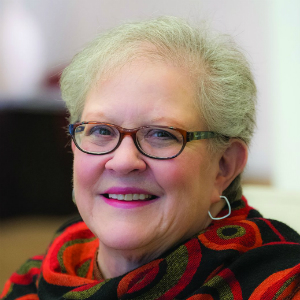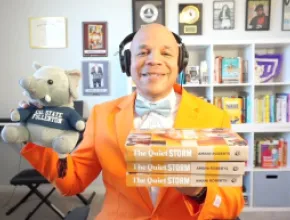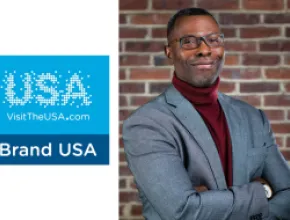Planning “life-cycle events,” such as end-of-life celebrations or memorials—events honoring and celebrating the life of someone who has died, replacing what many have known as "funerals"—has many similarities to traditional meeting and event planning, but with several major differences.
I reached out to a meetings industry veteran, a funeral director who has a background in hospitality, and a hospitality professor to get their take on this segment of the events industry, along with tips on how anyone can navigate the emotional demands of such occasions.
I am grateful to Deborah (“Debbi”) Andrews Presley, Andrew Smeltzer and Peter Zohos for their input on the diverse aspects of life-cycle events.
If in editing we have incorrectly quoted them, our apologies.
Interview with Deborah Andrews Presley
Debbi Presley, Private Dining Director, Fleming’s Prime Steakhouse & Wine Bar, Winter Park, Florida, and Founder of Party Planners Network (PPN)
Debbi@partyplannersnetwork.com
Q1: Please tell our readers about your career.
Deborah Andrews Presley: I have been both a planner and a supplier for over 20 years. Being a second-generation planner, I have been learning about events and F&B since I was very young--my mother [the late Arlene Sheff] started with the Jewish holidays. My experience branches from hotel sales to entertainment sales and then back to travel director and currently restaurant sales manager … there have been a few others in the middle.
Q2: Tell the readers about Party Planners Network, its goals, mission and why you founded it, and when and what knowledge it adds to the industry and to celebrations.
Presley response: Party Planners Network (PPN) was created [to fill] a need in the lack of communication among the restaurants in Winter Park, Florida, that offer private dining.
Although it began with that goal, it turned into much more. We say PPN elevates “event professionals by creating a collaborative network of colleagues focused on enhancing relationships, sharing leads, learning from one another, and supporting our local community.”
Although I have been a member of MPI, ILEA (International Live Events Association) and NACE (National Association for Catering and Events), along with our local CFWA, ABC (Association of Bridal Consultants) and PWG (Perfect Wedding Guide) guilds, I knew that I needed to make it different and show immediate ROI for my partners.
Here’s how PPN is different: We meet monthly in different locations in Central Florida. Each participant is given time to tell the group assembled who they are and who they work for, even if they are not a member. We love when they provide a personal tidbit to allow us to know them on a human level. Usually 60 attend each meeting--80 percent members and 20 percent guests. People love coming to PPN because it’s a very warm and open group of people.
For each meeting, we have a charity partner join us. Some of these are national; most are local Orlando charities. It’s not required that those in attendance donate; most want to help because they now have a personal connection to the person and charity.
We also do a “PPN Gives Back,” which are cash donations to local charitable organization.
Q3: Celebrations of any kind are parties, yet most meeting professionals bristle and make sure people know that they are not “party planners.” How do we move the thinking and terminology to be more positive about this aspect of events?
Presley response: I am sure within our community we understand the major difference in our titles, but honestly, the people hiring us don’t and why should they? The know they need to create something; either a meeting, celebration, gala, etc., but they don’t know how to do it.
So, they hire a “party planner or event planner.” The more we address our marketing and terminology out there to say, “event professional,” or our actual titles, the greater we make known what we do. I don’t take offense to others not knowing our “real titles.”
Q4: When your mother, Arlene Sheff, died, you and other family and friends threw multiple celebrations of Arlene and her life. Though I was unable to attend, I was, gratefully, the recipient of one of her scarves and one of her serving pieces.
Having part of her life in mine is a gift.
Had your mom told you what she wanted her life celebrations to be? In what ways were you involved in planning them? And for this type of event alone, what do you recommend to others to help their families or if they decide to take this on professionally?
Presley response: We knew mom wanted to donate her body to science, but for a celebration, no one had a plan. I was the one who suggested [the idea of celebrations] to Richard [Arlene’s husband]. I told him people needed to see him and us so they could tell us how they felt in a formal setting. I started the process with a very limited budget and timeframe.
I enlisted some of mom’s friends, people she had worked with. They helped with site selection and then I took over. I didn’t want a caterer--I just wanted nosh; lots of mom’s favorite things.
My sister, Brenda, and I decided to buy linens in her colors (and everyone noticed!!), and we created a buffet of noshes that she would have been proud of and served them on her platters with her serving pieces. I planned a fabulous “mom event” celebrating who she was and the people she loved from many thousands of miles away.
If the person whose life you are celebrating has left no instructions [see Joan’s May 3 blog and interviews for suggestions for planning ahead], think about the person being celebrated, their lives, what kind of party they’d have loved to attend.
If they were into fancy with crystal and roses, do just that. Guests will know the essence of the person remembered and carry that with them.
Q5: What skills and knowledge do you think, in addition to the usual logistical knowledge, an event planner and those who supply venues, F&B, decor, entertainment, etc., should possess, and which are needed to plan celebrations that may be different from the skills needed for meetings/conventions/conferences?
Presley response: I was always taught to be strategic in my planning and to think about all the things that could go wrong and fix those before they happen. Sometimes you have to walk in another’s shoes before deciding if an aisle is too narrow or the table has too many seats or the centerpiece is so high you can’t see the stage. Walk in your participants’ shoes when creating an event to allow for their needs and overall experience goals.
Interview with Andrew Smeltzer
Andrew Smeltzer, Senior Funeral Director, Geo. H. Lewis & Sons, Houston
Andrew.smeltzer@dignitymemorial.com
Q1: Please tell our readers more about you and any roles you might have had in the traditional areas of hospitality.
Smeltzer response: My career started at the age of 13 back home in northern Michigan at the local funeral home in my hometown. I went to college and got my bachelor’s degree in Mortuary Science and was offered a position at my current firm in Houston. I was never in the traditional areas of hospitality but my uncle, who was an executive manager at a high-end caterer in Houston for over 20 years, would often discuss with me how similar the two worlds were. He would give me guidance on how to best approach certain services and how to bring some of the common hospitality elements he often dealt with to that particular event.
Q2: In what ways do you think those who work in hospitality (hotels, convention and visitors bureaus, as meeting or event planners) can assist people with end-of-life events?
Smeltzer response: I think the best way for those that work in the hospitality industry, like hotels, event planners, etc., can assist people with end-of-life events would be to work with their local funeral homes and be an extension for them to offer services for families. Families will still traditionally come to funeral homes first for the initial planning stages and go from there. If you have contacts with your local firms, this can generate a great business relationship and be able to help those in need get all the options possible for a celebration of life.
Q3: How can funeral homes and colleges/universities, or organizations (like NACE or ILEA) that teach hospitality courses or provide programs about how to design and execute events work together to design programs to benefit each other and society at large?
Smeltzer response: Like all events, it is a teamwork environment. We all depend on each other’s specific skillset in order to achieve a desired outcome. I think it is important to have all parties or organizations interact and see what it is that each can do to help the other.
Funeral homes will have a large background on traditional aspects of funeral services, while organizations like NACE can bring a new perspective to how we do funeral services in a unique way and [form] essential business partnerships.
Q4: In working with people who are preparing for their own or another’s death, or after the death of a loved one, what are the three most important skills one should develop?
Smeltzer response:
- Listening: This is essential to everything. Unlike a wedding, where people may often gush about all the things they are wanting to do, in death it’s much more subdued. The listening skill is important because a family may mention something in passing that means a lot to them but may not bring it back up for unknown reasons. By listening closely and reading them carefully, you are able to pick up on cues from them on what will make this a much more positive experience in the end.
- Emotional control: This is an important one, because with the sensitive nature of this particular event, one must always be mindful of how they appear to others and their clients. Being able to separate oneself from the emotional side of the tasks and being able to fulfill all the necessary duties of the service are important because at the end of the day this only happens once. An emotional funeral director won’t do anyone any good.
- Flexibility: Being in the event planning world, we all know things can change rather quickly without us even being aware. So being flexible to changing priorities is a must!
Q5: What have I not asked you that you’d like to tell our readers who plan events and meetings, and operate facilities and services, about end-of-life/life celebration events?
Smeltzer response: Unlike most events such as weddings, where you have months or weeks to prepare, funerals and celebrations of life are much quicker usually and typically within a few days [of a loved one’s death]. So being able to have resources available at the last minute for a service is critical. Having trusted relationships with vendors and people are going to serve you very well when approached with helping to plan a celebration-of-life event.
Interview with Peter Zohos, MBA
Peter Zohos, MBA, Assistant Professor of Hospitality Management, Mercyhurst University
Q1: Please tell our readers more about your background.
Zohos response: I graduated for Mercyhurst College [now University] in the mid-’90s. My first job was with Hyatt Hotels in Chicago, where I was an operations manager for off-premise catering. I have also worked for Marriott and DoubleTree Hotels and with Aramark.
Most of my experience is in the food and beverage, meetings and sales areas, with experience in lodging as well. I taught at Mercyhurst University for nine years before returning to the industry to gain more operational experience and have now returned to Mercyhurst.
Q2: Describe the current Mercyhurst program for hospitality students. (This link is for those who want to learn more about the Mercyhurst Hospitality curriculum.)
Zohos response: The Mercyhurst University Hospitality Management program is named the Statler Department of Hospitality. It has been in existence for more than 40 years.
Our alumni work throughout the U.S. and the world.
We have three concentrations: Hotel Management, Food and Beverage Management and Events Management. In addition to the hospitality curriculum, our students benefit from a Mercyhurst liberal arts education. Our program produces well rounded leaders who will be able to contribute from the first day on the job. Recently our job placement is almost perfect.
Q3: What skills do you each think, in addition to the usual logistical knowledge an event planner and conference services professional should possess, and a hospitality salesperson should have, are needed when planning life-cycle events, and in particular end-of-life events?
Zohos response: Most importantly, the ability to be understanding and sensitive to the situation. Emotional intelligence is crucial in this setting. This is a highly stressful, extremely personal time where you are essentially planning what is almost like a wedding in the personal nature of the event, and doing it, in some cases, in just three or four days.
A sense of commitment to the client and the ability to be part event planner and part psychologist are both needed. One needs food and beverage knowledge, and a continuously expanding understanding of ethnic traditions that can enhance the experience when combined with a life celebration are crucial. You basically need to be an event planner, banquet manager and emotional support expert simultaneously.
Q4: Your program to incorporate end-of-life celebrations is in formation. Why do you think we need to broaden the thinking of our industry to consider life celebration events?
And why do you think there may be room to move beyond those and weddings--to all life-cycle event courses: reveals”, baby showers, birthdays, special birthdays and events in cultures celebrating those birthdays, engagements, weddings, divorces, retirement, etc.?
Zohos response: The entire culture likes customizing everything. From event planners being hired to assist with prom proposals, to gender reveal parties, to blowout events to celebrate a divorce; why should your final event be any different?
You only get one shot at death (or a final party), so make it unique. When looking to create a class in this area, we are seeing that with the sheer number of Baby Boomers who do not like to follow “the rules” to begin with, that we have a market for some exciting events.
The trick is how to monetize this as a funeral director. Funerals are already costly. I feel as if larger funeral home groups can be in a position to employ an event planner who handles events for the group is a reality for today and not just tomorrow. Funeral homes are being built as mega-complexes with banquet facilities, full food licenses along with beer, wine and liquor licenses. Hate to say, but it is almost like a major banquet hall that also does funerals.
Q5: Lastly, what did I not ask that you want others to know about what you do, the course you are planning, and how our industry can move the thinking more broadly?
Zohos response: As an industry we need to constantly be ready to adapt, grow and sell new ideas to the ever-growing customer base.
More and more, customers are willing to spend to hire professional planners to create memorable custom events in their personal as well as professional lives.
We need to prepare ourselves and our future planners in our classrooms in a way that is more like a financial planner. People hire financial planners and have multiyear relationships with them. Similarly, a life-cycle event planner can handle events for a family over many years.
Now to include an (end of) life celebration event.
Mercyhurst’s Events Management Program is aiming to continue to always stay in front of the needs of the industry. Traditionally, we have produced rising leaders with broad skill sets.
Related Content From the June 2019 Edition of Friday With Joan
[Plus: Part 1 of this two-part blog series, first published May 2019]
- Hospitality Education Must Change to Include All Life Events
- What's Your Take? June 2019 FWJ Poll
- Where Life, Death, Grief and Hospitality Connect
Click here to view additional content in the 06.07.19 Friday With Joan newsletter.







